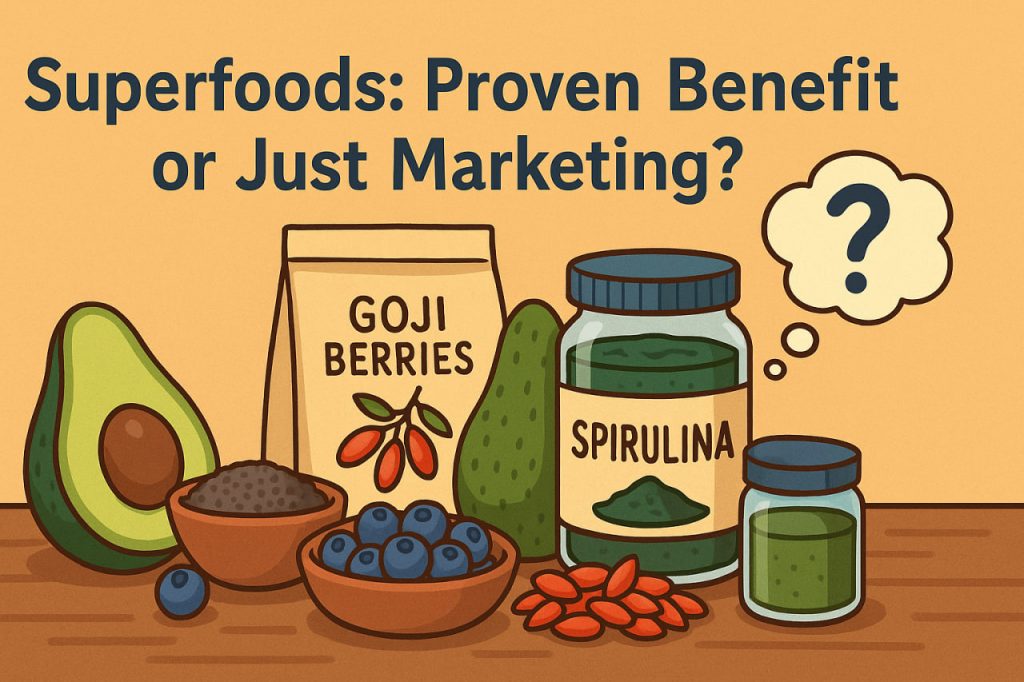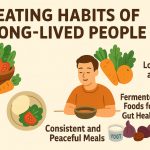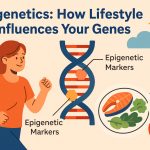In recent years, the term superfood has become a common label on food packaging, health blogs, and diet trends. It promises powerful health benefits from certain fruits, seeds, berries, or powders. But are these claims supported by science — or is it all clever marketing?
What Are Superfoods?
There’s no official scientific definition of a superfood. The term is mostly used in media and advertising to describe natural foods that are rich in nutrients, especially antioxidants, vitamins, minerals, or healthy fats. Common examples include chia seeds, goji berries, avocados, blueberries, and spirulina.
Scientific Evidence: Is There Any?
Some superfoods do contain high concentrations of beneficial compounds. For instance, blueberries are rich in anthocyanins, which have been shown to reduce inflammation and improve memory in small-scale studies. Dark chocolate with high cocoa content has been linked to better heart health due to flavonoids.
However, most studies on superfoods are either laboratory-based, involve small sample sizes, or are not conclusive. There’s limited evidence that any one food alone can significantly prevent or cure diseases. Health benefits usually come from a balanced diet, not one “miracle” ingredient.
The Role of Marketing
Many food producers and supplement companies use the superfood label to increase prices and make their products seem essential for health. This strategy often lacks regulation and may mislead consumers. Exotic superfoods like acai or maca root may cost a lot but offer no more benefit than cheaper local options like blackcurrants or oats.
The Real Power Lies in Variety
The healthiest diets — such as the Mediterranean or Japanese styles — don’t rely on a single powerful ingredient. They are based on diversity, fresh produce, and minimal processing. A carrot or an apple eaten daily as part of a varied diet might be more helpful than a rare powder from across the world.
Conclusion: Balanced Skepticism Is Healthy
Superfoods can be a great addition to your diet, but they should not replace common sense or medical advice. Eating a wide range of whole foods, limiting processed items, and maintaining an active lifestyle is still the foundation of long-term health. Don’t fall for hype — focus on habits, not headlines.
Glossary
- Superfood – a marketing term for nutrient-rich foods believed to have health benefits.
- Antioxidants – molecules that protect the body from oxidative damage.
- Anthocyanins – natural plant pigments with anti-inflammatory effects.
- Flavonoids – compounds found in plants that support heart and brain health.
- Laboratory-based – conducted in controlled environments, not real-world settings.
- Balanced diet – a nutritional plan that includes all major food groups in proper proportions.
- Whole foods – foods in their natural state, minimally processed.
- Minimal processing – reducing industrial treatment of food to keep nutrients intact.


